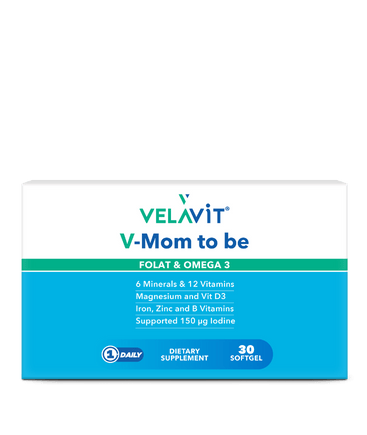





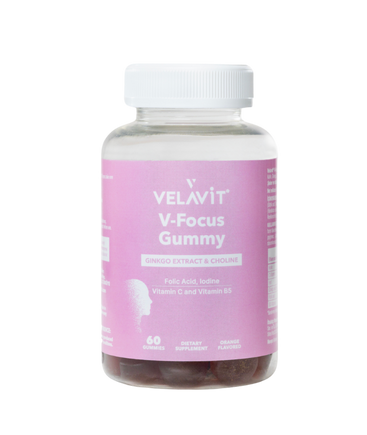
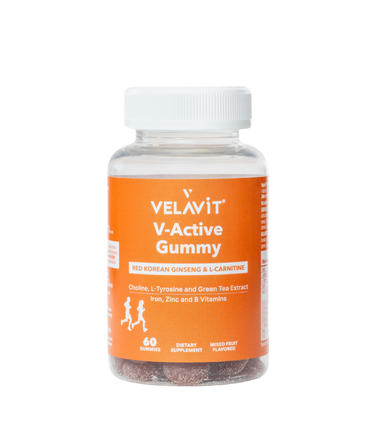


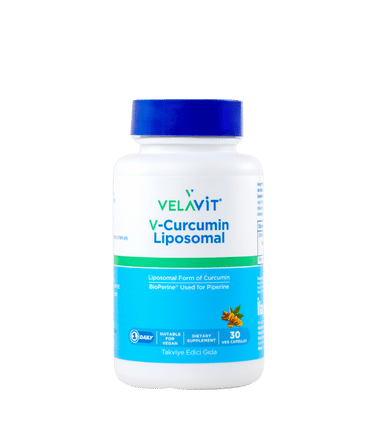

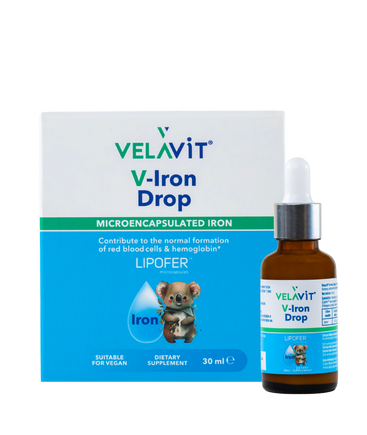








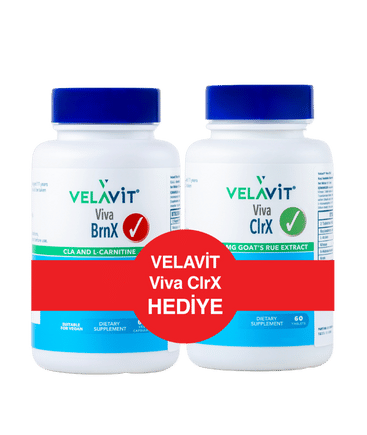









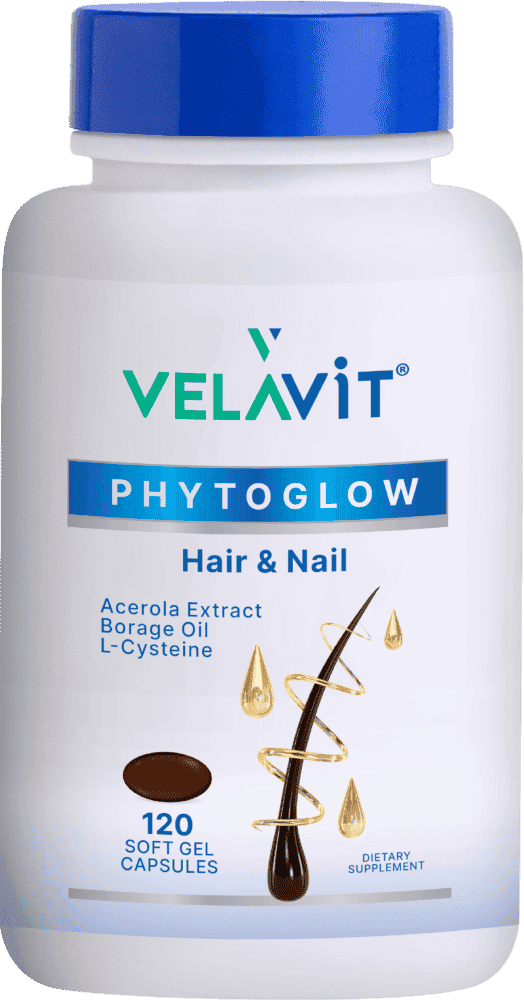








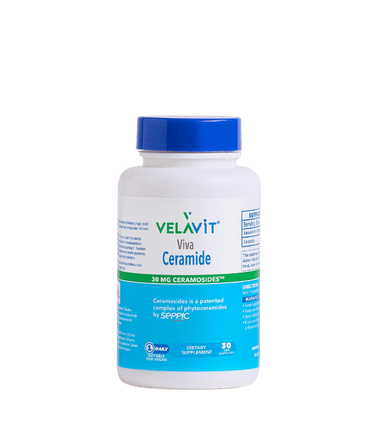
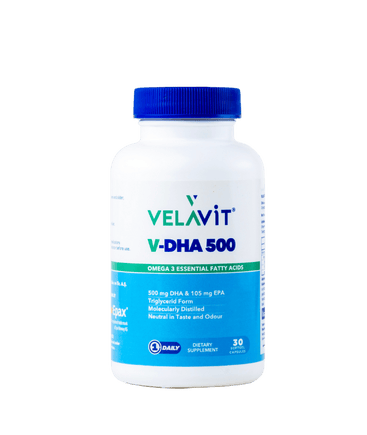





















Vitamin & Mineraller
Multivitamins
Vitamins & Minerals
Beauty
Herbal Supplements
Essential Fatty Acids
Probiotic
Specialty Products
Children's Products
Longevity | Long and Healthy Life































































Vitamin & Mineraller
Multivitamins
Vitamins & Minerals
Beauty
Herbal Supplements
Essential Fatty Acids
Probiotic
Specialty Products
Children's Products
Longevity | Long and Healthy Life
Protect your health with V-Colostrum with L-Lysine Vit B2 Lozenges' 6 special ingredients. 💪🌟
✅ High amount of Colostrum content.
💊 Vitamin B2 and C support with L-Lysine.
🌿 Formula enriched with turmeric and ginger.
🍋 Sugar-free lozenge with natural ginger and lemon flavor.
It is recommended that individuals aged 11 and above consume 1 lozenge a day.

Don't forget to take your vitamin C for healthy days. 🍊
Health is with you in every sip with Velavit V-Effer C! 💪

5000 mg Biotin power every day with V-Biotin Plus. ✨
Nourish and strengthen your hair from within with its Zinc and Selenium supported formula. 🌼

Doğal yoldan daha sağlıklı bir yaşam için V-Cranberry & Vit C sizinle. 🍒
Turna yemişi ve C vitamini kombinasyonu, sağlıklı yaşamınızı destekler. 💪

Live your best every day by supporting your body with V-Probiotics with Enzymes. ✅🍍
In each capsule;
🔹Probiotics and Digestive Enzymes together
🔹200 mg Inulin
🔹100 mg Ginger
🔹100 mg Bromelain

Would you like to look at the content of Viva Vital Collagen in more detail? 😊👇
🔹 Provides vitamin support containing hydrolyzed collagen, glycine, vitamin C and copper.
🔹1000 mg extra Glycine supported.
🔹Contains 10000 mg of Collagen peptides in hydrolyzed form.
🔹 It can be preferred preferably on an empty stomach before going to bed.
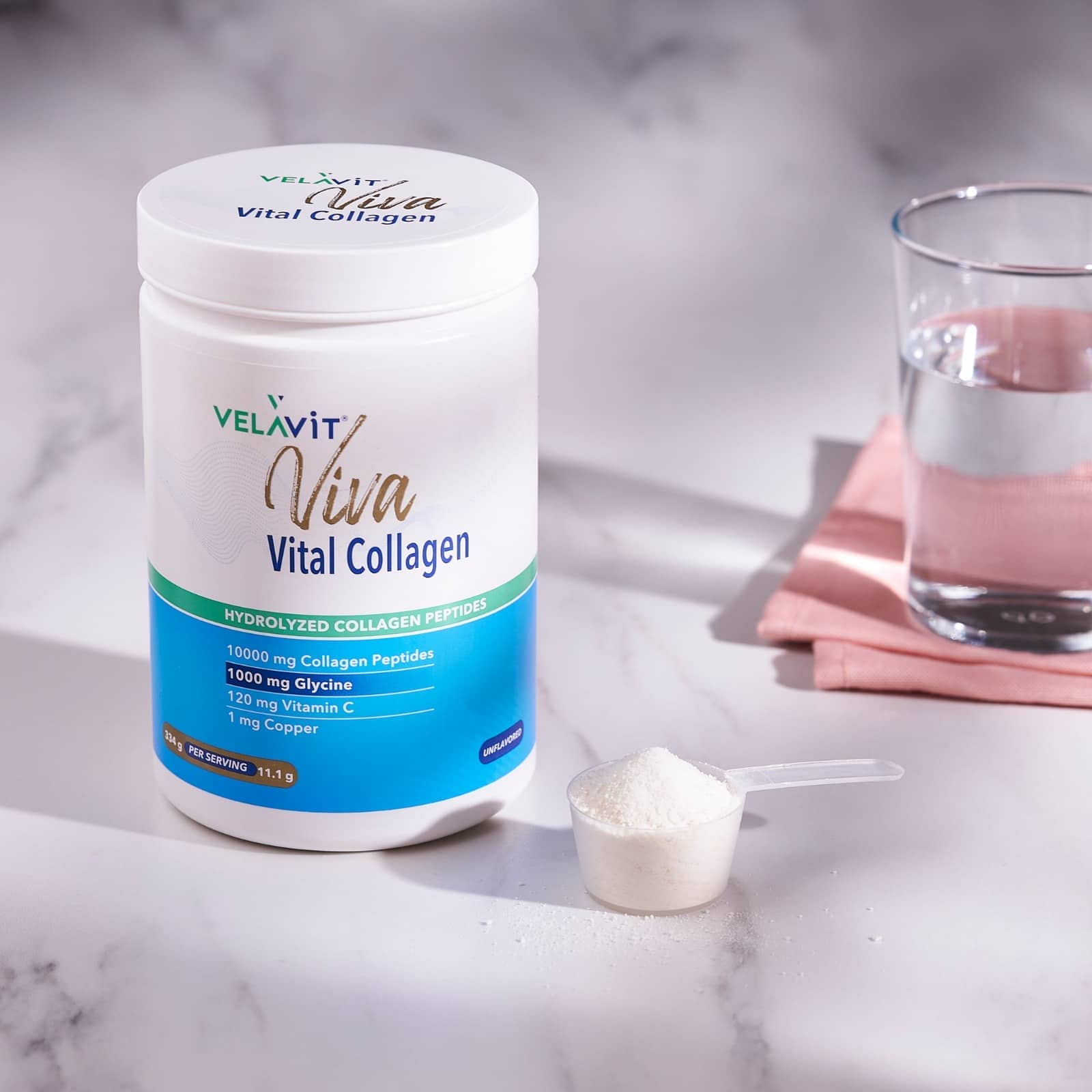
Viva AptX Food Supplement is a natural food supplement prepared with a special formulation. 🍃
👉 Contains nutrients obtained from natural sources.
👉 Enriched with alpha lipoic acid and cinnamon.
👉 It is recommended to use 2 tablets a day before meals.
👉 Contains Berberis vulgaris, Garcinia cambogia, Alpha lipoic acid and Caraway herb.
Your supporter for a healthy life is at Viva AptX! 👍

One scoop of health, Velavit Viva Vital Collagen. 🌟
🥛 Consume 1 scoop of powder per day by dissolving it in 250 ml of water/liquid.

Healthy children mean happy tomorrow! 🤸♀️
Probiotic support in every drop with V-Coliflor Kids. ✅
👍 Shake the product well and use the dropper to add 5 drops once a day, before or after meals, directly into the mouth or into drinks below 35˚C.

V-St. Start each day positively with the special formula of John's Wort & Rhodiola with B1. 🌼
❎ Does not contain gluten, soy or lactose.
✅ Vegan friendly.
💊 It is recommended to consume only 1 capsule per day for individuals over 11 years of age.

V-PreMom is a daily vitamin and mineral supplement for expectant mothers, containing folic acid, zinc and magnesium! 🤰💕

In contemporary medicine, aging is increasingly being considered a disease. The concept of longevity, or extended lifespan, represents a new paradigm in the field of medicine andhealthcare. In this article, we will explore the meaning of longevity medicine and the approachesevolving around this concept
Longevity, in its literal sense, means a long lifespan. However, this concept does not merely refer to an increase in chronological age. The primary focus is on healthspan—the period of life spent in good health. These concepts serve as a guide in medical sciences to slow down biological aging and promote a healthier life.
If you are looking for a longevity specialist, their primary goal is to optimize your biological capacity to its highest potential while working to prevent the onset of age-related diseases.
Currently, more than 8,000 diseases have been identified, many of which—especially cardiovascular diseases, cancer, and dementia—are strongly correlated with aging. A simple fact remains: as we age, the risk of disease and mortality increases.
These statistics emphasize the need for a new medical approach. Preventing age-related diseases fundamentally involves slowing down the biological processes of aging.
The core principle of longevity medicine is
There are organisms in nature with minimal biological aging throughout their lifespan, and artificial intelligence-supported research on humans has gained significant momentum in pursuit of this goal.
Projects such as TAME (Targeting Aging with Metformin) aim to establish aging as an officially recognized disease. Metformin, a medication currently used to treat diabetes, is being repositioned as a potential agent to slow down the aging process. Such repurposing efforts present promising prospects for treating aging as a modifiable condition.
It is predicted that by 2033, biological aging will lag behind chronological aging. For now, the primary objective is to remain healthy long enough to reach that milestone. At this stage, adopting a health-conscious lifestyle is of critical importance.
Fundamental habits such as proper nutrition, quality sleep, and regular physical activity play a pivotal role in slowing biological aging. Additionally, epigenetic research provides insights into optimizing an individual's genetic potential. The future holds groundbreaking innovations, from genetic engineering to AI-driven medical applications.
Ultimately, longevity medicine is not solely about extending lifespan—it is about enhancing the quality of life during those extended years. As individuals, our responsibility is to care for our bodies in the best possible way. Longevity is not just a goal but a philosophy of integrating healthy living as a daily habit.